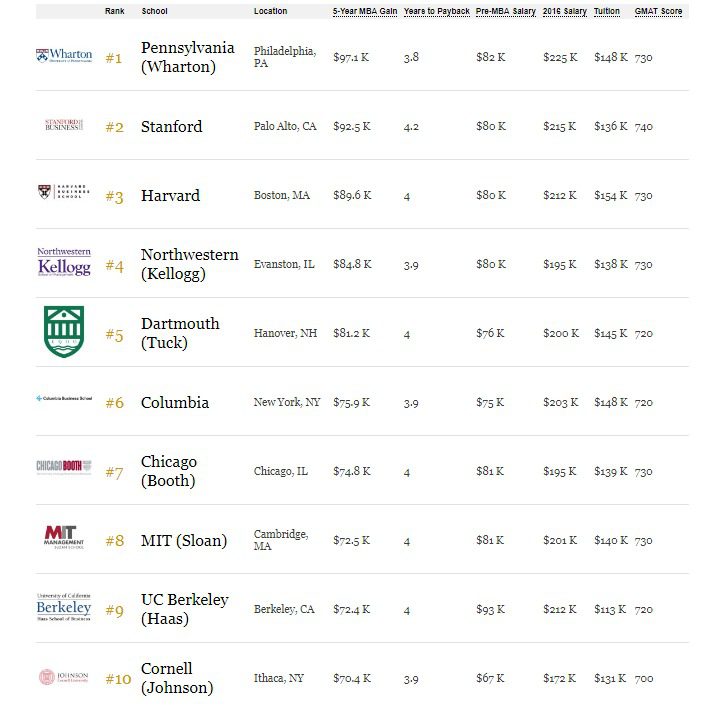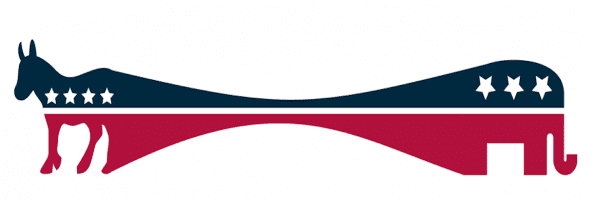Admissions Tip: Round 1 Rejection Reflections

Last week a number of programs, including Wharton, Michigan Ross, and MIT Sloan, sent out interview invites to their Round 1 candidates. These invitations came on the heels of similar updates from the likes of Harvard Business School and Chicago Booth. As a result, many candidates are now diligently preparing for interviews, having made it to the next phase of a competitive admissions process.
Rejected Without Interview
Of course, we recognize that not all applicants are so fortunate. And since we’ve published a great deal of content on interview prep of late, we’re turning the tables and dedicating this week’s admissions tip to those of you who haven’t moved forward.
The interview invite stage for Round 1 is the first signal as to your potential for attending a leading business school, and for a few, it can be a rude awakening.
If you have not yet received any good news, despite submitting applications in Round 1, you’ll want to read this post very carefully.
Reconfiguring Following Rejection
If there is any good news when it comes to being rejected in the first round, it’s that it’s still early in the application season, and not too late to readjust your strategy and target appropriate programs for Round 2. Round 2 application deadlines generally fall in the first couple of weeks of January, which leaves a little more than two months to prepare a new set of applications. It is also often the case, that your first applications are not the strongest. You learn through this process, and could potentially submit stronger applications for Round 2. Or it might be the case that you need to re-evaluate your goals, and then target a new set of programs that are appropriate for those goals. You could also adjust the competitiveness of the programs you target. So if you struck at all of your R1 targets, you may need to shift your target to slightly lower ranked programs.
Rejection Reflection
You also might want to take a hard look at what the schools which chose not to interview you, might have found lacking. If it’s your GMAT score, you have two months to try to remedy it. If you failed to make a compelling case for the degree or to properly showcase your experience in your essays, it might be a good time to get a fresh perspective from a third party on your materials. If your recommendations may have been lacking, speak with your writers or seek out new colleagues who might be able to better support your candidacy.
Of course, if there isn’t something as tangible as a poor test score, shoddy essays, or subpar letters of recommendation, you may need to take a longer view. For instance, if you lack professional experience, leadership accomplishments, or outside activities, it might make sense to delay your MBA ambitions, and reapply in a following year. Reapplicants are generally looked upon favourably in the admissions process.
MBA Motivations
Finally, you might want to reassess whether the MBA is the right next step for you. Perhaps the admissions committees are doing you a favor, and nudging you in a different direction.
Chin Up!
There’s no doubt that receiving negative results can be painful, but it’s how you handle the situation that will determine your future. Don’t lose site of the fact that news of rejection(s) is actually useful feedback in a process that can be quite opaque. Take the feedback to heart, regroup, reassess, and devise a plan to help you reach your goals.
This article has been edited and republished with permissions from Clear Admit.
Philadelphia or Boston? Where’s the Best Place to Earn a Part-Time MBA

If you are interested in pursuing a degree in a diverse East Coast city, want to be surrounded by history and culture, and still immerse yourself in growing business community, two main cities come to mind: Philadelphia and Boston.
Both cities are at the center of U.S. history, and continue to be some of its largest centers of commerce and academia, with numerous opportunities to put its stellar education to work.
Surrounded by so many possibilities for professional development, an MBA student in a city like Philadelphia or Boston may not want to put their career and income on hold to pursue a full-time degree.
Thankfully, many of the business schools in Philadelphia and Boston offer part-time MBA programs, allowing students more flexibility as they kick off their careers in these exciting cities. But how to decide which one? We’ll take a look at some of the top part-time MBA programs in each metro to help you choose the right city for you.
Location
Once the capital of the United States, Philadelphia has never stopped being a center of both business and history since the time it played host to the country’s founding fathers. Home to some of the oldest and best universities in the country, Philadelphia has experienced a renaissance in recent years as young talent has become priced out of more expensive metros like New York City and Washington DC. The cost of living in Philadelphia remains fairly low, while the ever-growing business scene in the city offers the opportunity for high earning potential. This year, 14 Philadelphia-area companies made the Fortune 500 list.
Like Philadelphia, Boston has been a center of commerce and trade since the days of the Boston Tea Party. Today, the city is home to nine Fortune 500 companies, including major established firms like GE (13th on the Fortune 500 list) and newer but thriving businesses like Wayfair. However, Boston has a much higher cost of living than Philadelphia. The city currently ranks as the third most expensive city in the country.
Programs
Between the Wharton School of Business and the Harvard Business School, Philadelphia and Boston offer two of the most highly regarded MBA programs in the country. However, both of these schools only offer full-time MBA programs. Students looking for more flexibility in their schedules still have a number of stellar programs to choose from.
Most of the part-time MBA programs in the Philadelphia metro work on a hybrid structure, allowing students to take a combination of classes both online and in person. Many programs also offer students the chance to select majors or concentrations in which to specialize their business education. With a variety of possible concentrations at some of the most highly-ranked part-time programs in the country, students from these programs have gone on to find employment at major firms like DuPont, KPMG, and JPMorgan Chase.
Part-Time MBA Programs in Philadelphia Include
- Lehigh University College of Business and Economics
- Fox School of Business – Temple University
- La Salle University
- LeBow College of Business – Drexel University
- Lerner College – University of Delaware
- Rohrer College of Business – Rowan University
- Rutgers School of Business, Camden
- Villanova School of Business
- West Chester University
Like Philadelphia, Boston’s part-time MBA programs offer more flexibility for students to complete their degree on their own time. Most courses are offered in the evening or on weekends, and can be taken over the course of just two years or up to seven. Programs like the MBA at D’Amore-McKim also give students the opportunity to concentrate in fields such as Corporate Finance, Corporate Renewal, Entrepreneurship, and more.
Part-Time MBA Programs in Boston Include
- Carroll School of Management – Boston College
- D’Amore-McKim School of Business – Northeastern University
- F.W. Olin Graduate School of Business – Babson College
- Questrom School of Business – Boston University
- Sawyer Business School – Suffolk University
- Simmons School of Management
Cost
The tuition costs can vary from program to program, and can also be cheaper if the part-time program is competed online. On average, programs in the Philadelphia metro area can range from $45,000-$65,000 for the degree. The range of costs in Boston can be slightly higher, with some students spending up to $95,000 over the course of their degree.
Jobs
Although the cost of an MBA in Boston may be slightly higher than Philadelphia, the difference in average salary between the two cities may even out concerns of cost. In Boston, the average salary for someone with an MBA degree in a field like finance is $112,000, whereas in Philadelphia it is only around $90,000 per year.
Wharton, Stanford Top Forbes’ 2017 Business School Ranking

For the first time ever, the Wharton School at the University of Pennsylvania topped the biennial Forbes list of the best business school’s in the United States.
Coming in second place on the Forbes 2017 rankings, revealed earlier today, was the Stanford Graduate School of Business, which was followed by Harvard Business School, Northwestern’s Kellogg School of Management, and Dartmouth’s Tuck School of Business rounding out the top five.

Forbes‘ top 10 U.S. business schools (2017)
Rounding out the top 20 were some familiar MetroMBA favorites, such as Columbia Business School (6th), Chicago Booth (7th), MIT Sloan (8th), UC Berkeley Haas (9th), UCLA Anderson (15th), the McCombs School of Business UT-Austin (17th), and the Mays Business School at Texas A&M (20th).
Just making the final cut on Forbes’ newest list, which includes only 70 schools, was the Fox School of Business at Temple University (60th), Pepperdine’s Graziadio School of Business and Management (65th), Northeastern’s D’Amore-McKim School of Business (66th), the Kogod School of Business at American University (67th), and the Gabelli School of Business at Fordham University.
Method To The Madness
Nearly every major publication that reveals its own respective business school ranking list has its own principle methodology in which it follows. For instance, unlike Forbes, the Financial Times ranking system relies more on alumni survey responses for its final ranking. While Forbes does utilize surveys in its ranking, its primary focus is on how graduates fare on their return on investment.
In the ranking release, Forbes staff writer Kurt Badenhausen notes:
“Our ranking of business schools is based on the return on investment achieved by the class of 2012. We examined more than 100 schools and reached out to 17,500 alumni around the globe. We compared graduates’ earnings in their first five years out of business school to their opportunity cost (two years of forgone compensation, tuition and required fees) to arrive at a five-year MBA gain, which is the basis for the final rank. Schools whose alumni had response rates below 15 percent or a negative return on investment after five years were eliminated.”
In regards to Wharton topping the 2017 list, Badenhausen writes, “These days most Wharton MBA students head to finance or consulting jobs upon graduation (79 percent of the class of 2012), which traditionally are the most lucrative areas for MBAs. The concentration in these sectors pushed Wharton’s current total compensation for the class of 2012 to the highest of any school in the world at $225,000.”
YOU MIGHT ALSO LIKE: The Highest MBA Salaries in Philadelphia
The exceptional cost of living around Stanford and shockingly low admissions rates (6 percent) contributed to the business school falling off its top spot from the prior year. Stanford GSB graduates, however, were given enormously valuable stock options after earning employment, with a median value of $380,000. Despite the astronomical figures, Stanford GSB grads still saw a dip of around $40,000 in total five-year compensation compared to the Class of 2010. Similarly, HBS grads saw a $28,000 five-year drop compared to the Class of 2010. Wharton 2012 grads, in contrast, gained $18,000 compared to two years prior.
In regards to employment, not much has changed since 2012. McKinsey and Co. was the top employer of the Wharton Class of 2012, hiring over 50 of the school’s 800-plus graduates. Alongside McKinsey were Bain, BCG, and Deloitte, which are still the school’s top employers. However, since then, Amazon has overtaken Goldman Sachs in the Wharton recruitment war.
Thomas Jueng, Seoul native and 2012 Wharton grad, tells Forbes, “Wharton was a great springboard to make a transition geographically and job position-wise with a strong brand name and network as well as providing practical knowledge.”
Read the entire Forbes list of the best U.S. business schools here.
Which Boston MBA Programs Offer the Best Return on Investment?

A stellar résumé, well-targeted recommendation letters, and a strong GMAT score may be vital in earning a spot in your dream business school, but one factor that may weight heavier than everything else is the return on investment. Will the school be worth it? How successful are its alumni? How do employers feel about the school name on a diploma?
A person needs to know that their time—and money—will amount to success and a well-paying job. If Boston‘s the city for you, here are the top four business schools if return on investment, or ROI for short, is on your mind.
#1) Harvard Business School
This prestigious university might come as no surprise as first on our list. But it’s not at the top for nothing. Home of one of the world’s first MBA programs, Harvard Business School is a bit separate from the main campus itself in Cambridge, sitting in Boston’s Allston neighborhood.
Unsurprisingly, the program’s ROI is highly-competitive. Tuition at HBS currently costs around $72,000. That’s a lot more than how much a student might pay per year elsewhere, even without considering the usually stellar track record of HBS grads. Graduates in 2016 had median base salaries of $135,000 with a median signing bonus of $25,000. Sixty-eight percent received a signing bonus. That’s a lot of people. And it’s a pretty sure thing. Work hard at Harvard, and it appears you’re sure to reap the benefits.
READ MORE: HBS Announces Largest-Ever Scholarship Donation
#2) Sloan School of Management – MIT
At MIT’s Sloan School of Management, students can feel certain they’ll succeed after graduation. Individuals, of course, may determine their own success, but Sloan knows how to get its students there. The school is known for its business offerings, particularly its global Sloan Fellows program. There, students can walk away with an executive MBA in just one year. Sloan has been growing its educational base since 1914 when its “Engineering Administration” course set a business tone in the technical school.
Currently, tuition at MIT Sloan sits at $71,000, which isn’t much less than Harvard’s. The median base salary for 2016 graduates was $125,000, with salary ranging anywhere from $40,000 to $200,000.
The business school can provide a myriad of opportunities, especially through its various centers and initiatives, which focus on, science, innovation, medical research, and more.
#3) D’Amore-McKim School of Business – Northeastern University
This business school is tucked in Boston’s arts neighborhood, the Fenway Cultural District. Northeastern University offers multiple campuses, but the MBA programs take place at the D’Amore-McKim School of Business.
MBA students pay the same tuition for classes online or in person: $1,560 per credit hour. For a year, that’s roughly $28,080—significantly less than the aforementioned Harvard and MIT. So if you’re not ready or can’t afford to drop a bunch of money on costs, D’Amore-McKim might be the program for you. Its graduates go on to make $81,000 a year, which is nearly 66 percent more than yearly tuition. The top base salary for recent alumni is $115,000.
These employment opportunities come quickly: 96 percent of D’Amore-McKim alumni accept a job offer within three months of graduation.Companies like Zipcar and Hasbro, Inc., hired graduates last year. Resources like the Graduate Career Center and the school’s clubs can help students make it. Clubs like the Emerging Markets Club gives students the hands-on experience they need to succeed.
#4) Questrom School of Business – Boston University
The Questrom School of Business at Boston University offers a variety of MBA programs. The first was launched in 1925, but the school went on to add an executive MBA, public and nonprofit MBAs, evening MBAs, and health sector MBAs.
A full-time MBA tuition costs $51,916 at Boston University. The prices vary depending on which program a student decides is right for them, which contributes to the school’s placement on the list. For example, the executive MBA costs nearly double the traditional MBA rate. However, alumni do go on to make that money back. In 2016, graduates’ mean base salary was $100,820. About 92 percent of graduates accepted a job offer just three months after earning a degree, with nearly all taking an internship. Places like General Motors and IBM hired recently hired Questrom grads.
You could be next. But it’s up to you to decide what school makes the most sense for you. You’re onto something with Boston though. The seafood will never end, and the accents will always entertain. Find the city’s best executive MBA program or explore its one-year MBAs if you need just a little bit more info.
HBS Paper Looks At US Political Problems Through Lens of Competition

In the free market sense, competition is one of the world’s greatest drivers of innovation. But more often than not, the effect of political competition may not be readily positive, according to new research from Harvard Business School.
Co-authored by former CEO Katherine Gehl along with HBS professor and U.S. Competitiveness Project Co-Chair Michael E. Porter, the duo identified how the “fundamental structural issues ailing the U.S. political system” have evolved using Porter’s Five Forces analysis.
The report breaks down how the American political “duopoly is protected by huge barriers to entry that have not only blocked major new parties but also independents and moderates” and “will not be self-correcting.” What has transpired from time immemorial, according to Gehl, is that the two dominant competitors in the American politics industry “focus on serving their partisan supporters and special interests, not the average voter.”
One revealing portion of the study digs deeper into the profound effects ideology has on the issue.
“Parties compete to create and reinforce partisan divisions, not deliver the practical solutions that are the most important outcome we need our political system to achieve” … “The duopoly appeals to its partisan supporters based on ideology, not policies that work. Ideology offers simplistic and polarized approaches to addressing issues. The definition of ideology includes words such as ‘beliefs,’ ‘perspectives,’ and ‘doctrine,’ not words like ‘reality,’ ‘objective analysis,’ and ‘facts.’ Ideological stances appeal to partisan believers but rarely, if ever, provide an actual solution.”
Porter, whose organization “identifies the necessary steps policymakers and the business community must take to improve U.S. competitiveness,” explained the roots of his desire to extend his research into the political domain.
“I was drawn to analyze the U.S. political system as an industry when our research found that our political system is the biggest impediment to U.S. competitiveness,” Porter said. “Our dysfunctional political outcomes are a competition problem.”
Gehl and Porter used their research as an opportunity to evaluate “which powerful and achievable political reforms should be pursued” and then lay out an actionable plan for how to reinvigorate “our democracy by shifting the very nature of competition.”
Click here to read full report.
Harvard Business School Breaks Down the Amazon-Whole Foods Merger

The hefty $13 billion price Amazon paid for high-end grocery store chain Whole Foods means a lot for the future of both companies. But what exactly does purchase mean for the future of the American eCommerce giant? Harvard Business School recently looked deeper into the move.
Continue reading…
